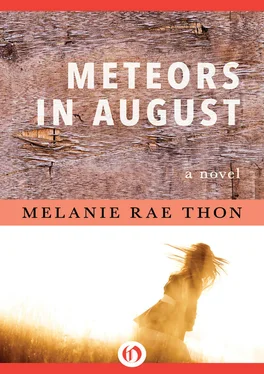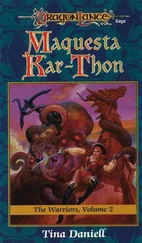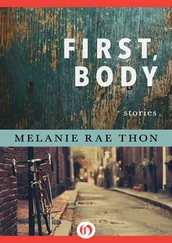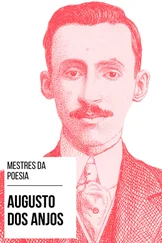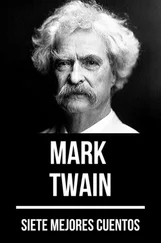As soon as Arlen was out the door, I said, “Mom—”
“Not a word,” she said.
I tried again. I wanted to tell her that I wouldn’t leave, not until she was ready to have me go. She pressed her knuckles into her eyes. “Not now,” she said, “please don’t tell me anything now.”
I thought of growing old in my parents’ house, cooking their dinners, washing their sheets. I imagined Eula and Luella in their bath, soaping each other’s back — who cared what anyone else thought? I saw Myron making his mother’s tea after dinner so that she could rest her feet. There were so many things he couldn’t do, but he was able to do this night after night, and I believed the smallest acts of kindness might save us from God’s anger, might allow Him to be merciful in the end.
Now that I believed I saw the answer, the humble path, I was anxious to show God how gladly I would give up my life to His will. To my mind, nothing could be more work than attending the prayer meetings Marlene Grosswilder held in the auditorium every morning before school. But I was God’s docile lamb. This was just one small test.
For three mornings in a row I lurked in the back of the room, hoping Marlene and her friends would tell me something I didn’t know. I knew the man who was supposed to be my savior had healed lepers and raised men from the dead, but I didn’t know how to live like him, selflessly and free of desire. I saw Mary Magdalene on her knees, anointing him with her perfumes, burning her incense, combing his long hair. I wondered how he could resist her.
Marlene’s followers spoke of mounting the wings of eagles, and went into a swoon singing a song about love being patient and kind and altogether lacking in envy. I longed to have the patience to love Marlene, but I swiftly failed.
On the fourth day Marlene indulged in a rousing reading of the Twenty-third Psalm. Her flabby thighs shook when she claimed to be walking through the valley of the shadow of death, and she looked straight at me when she said God was preparing a table for her in the presence of her enemies. When she finished her bit, Marlene wiped the sweat from under her nose and marched down the aisle toward the very place where I stood. I looked over my shoulder, but sure enough, I was the only one there. “I’m so glad you’ve joined us,” she said. “I hope you’ll sit in front tomorrow and that you’ll prepare a reading of your own to share with the others.”
I considered Marlene’s generosity through the years: the valentines I didn’t get, the parties I wasn’t asked to attend. “You know,” she said, “it’s a wonderful thing. We’ve had our disagreements in the past. We never could be friends before, but now we can be friends in the Lord. Isn’t that fine?”
“That’s not fine at all,” I said. “That’s a heap of crap. Either people are friends or they’re not.” Marlene sputtered but couldn’t answer. Swearing was a great sin to her. She had a gift for meanness when she was a kid, but as far as true wickedness was concerned, Marlene Grosswilder was as helpless as a blind woman describing the color red. I was sure no boy had ever chased her through the woods, no dogs had ever bounded across her dreams.
I didn’t waste time on guilt. I needed guidance, someone who understood that the depths of my sins went far beyond using a cuss word now and then, someone who would recognize evil at a glance, a woman who wouldn’t hesitate to pluck out her own eye if it offended her. I knew just where to find that woman, but I’d have to wait until Tuesday night.
I HAD to sin to go to Freda Graves’s house. I had to lie to my mother. This was the price God demanded, the rip in my veil of purity, a constant reminder of my inability to escape myself. God kept me humble.
The night I joined Freda Graves’s group, people nodded to me as if they’d been expecting me for some time. I spotted Myron Evans, more pale than ever, his hands resting limp on his knees; I had to look away, thinking how he’d offered to pay Zack Holler for something I was beginning to understand. I was ashamed to know, ashamed to be tempted by the same boy. I flushed with the memory of Myron as he cradled his strangled cat, its early death the cost of desire.
Lyla Leona wore a red satin top with spaghetti straps. We’d had a freak spring storm the day before and a fine layer of snow still clung in the shadows near the houses, but Lyla never shivered. Her cheeks burned bright as just-slapped skin. She was a warm woman. Bo Effinger sat squeezed up against her on the loveseat. He pinched his own legs, fighting the urge to lay one of those gigantic paws on Lyla’s big thigh. He meant to leave a trail of marks up and down his leg, a reminder to be good. He had to keep hold of himself. Who else would dare to stop a six-and-a-half-foot man with a bulging forehead and no eyebrows? No one. His white hair shot up straight from his skull, fine and sparse, dead grass on a hill, ready to blow away.
Mrs. Graves’s congregation had swelled to nearly twenty; I was the youngest but not the furthest astray. Minnie Hathaway motioned to me, patting the empty place beside her on the couch. I couldn’t refuse her invitation. Now that Minnie denied herself the calming effects of alcohol, she couldn’t keep still. Her head bobbed on her skinny neck; every few minutes her whole body jumped, as if an electric jolt buzzed through her cushion. She tried to pretend nothing had happened. After punching the air with her bony fists, she folded her white-gloved hands over her patent leather purse and smiled at the ceiling. She had tried to paint a beauty mark at the side of her mouth, but a spasm in her palsied hand made the mole look huge and cancerous.
I knew Minnie Hathaway’s father had lived too long. That’s what Arlen said. He chased every young man from their porch. When he finally had the decency to die, Minnie was already wrinkled and her hands shook in the morning. She couldn’t make her coffee fast enough to stop the tremors. After a while she didn’t bother to try: whiskey was just as warm and worked twice as fast.
She owed her father her life, that’s what she thought. Her mama died the day she was born. “That old fool Dr. Trent told Herman Hathaway his wife was dead before he mentioned his daughter was alive,” Arlen told me. “When the poor man heard the baby wail, he thought she’d been born of a dead woman, and no amount of talk could convince him otherwise. He dressed her up so fine, in little wool capes with fur collars, pretty lacy dresses, and patent leather shoes. But he couldn’t bear to look at her — even in the end when she had to feed him from a spoon that old man didn’t look her in the eye.”
Minnie was only twenty when her father had his first stroke. He never spoke again. He didn’t speak but he lived. Fifteen years of silence. Fifteen years of blinks and grimaces. Fifteen years of bedpans and soiled sheets, and oatmeal dribbling down his chin.
I stared at Minnie Hathaway, looking for the girl she had been before she watched her father die so slowly. But that girl was gone; the face I saw was withered beyond salvation, withered even beyond the grace of love. I thought she’d done the right thing, staying with her father all those years, but I saw how she’d paid, and I was afraid.
These were my comrades, Lyla and Bo, Myron Evans and Minnie Hathaway, familiar people I did not know. Just being in their company made me think there must be hope for somebody like me. I wasn’t too far gone, not by comparison.
The lights flickered. A blast of cold air moved through the room like a parade of the dead. Freda Graves stood in the entryway, stomping snow off her boots. Her hands were bare, chapped and raw from the cold. She wore layers of scarves and shawls, dark and unwashed, tattered moth-eaten wool and frayed silk. She unwrapped herself quickly, leaving the last shawl draped around her shoulders.
Читать дальше
